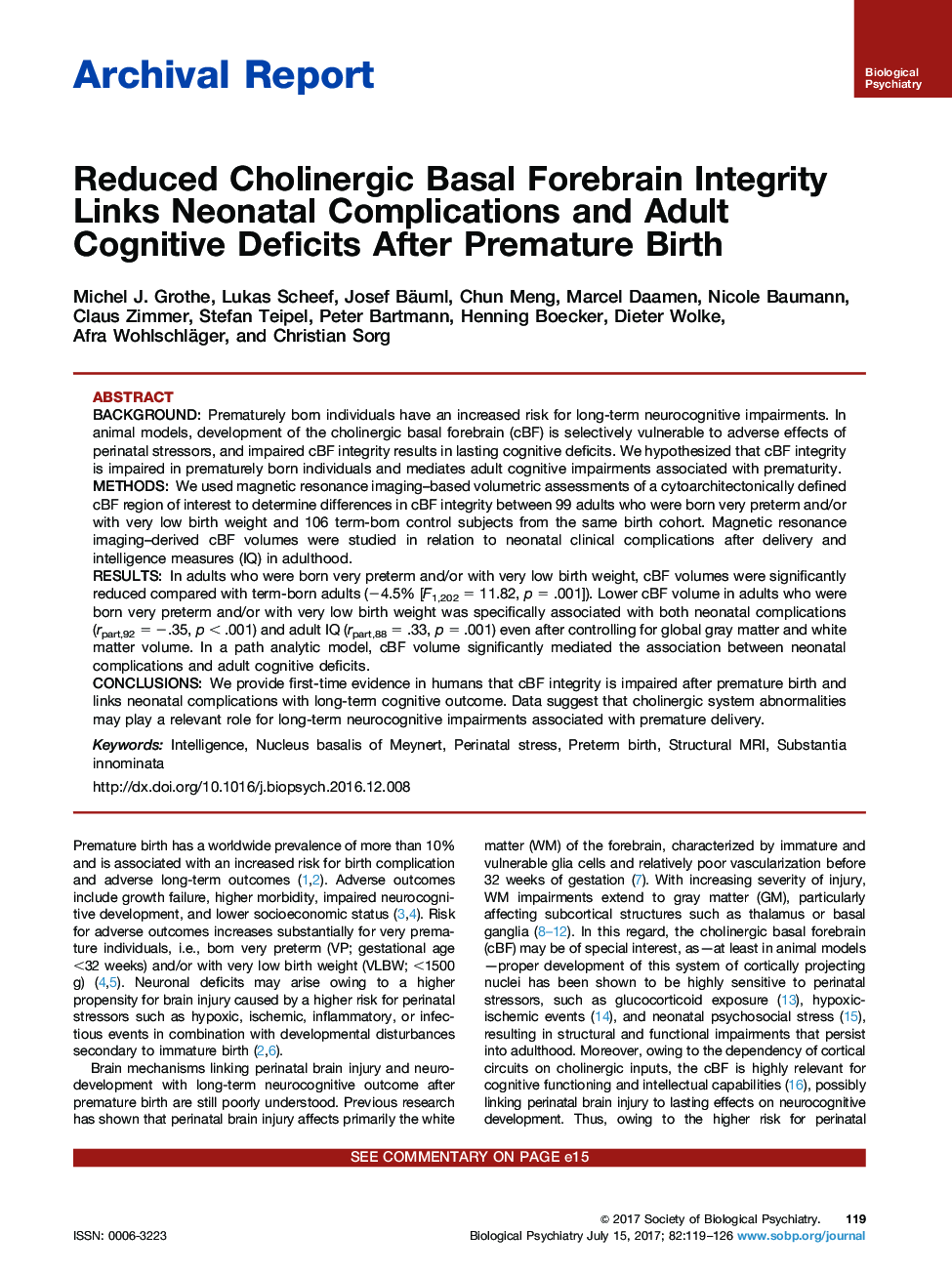| کد مقاله | کد نشریه | سال انتشار | مقاله انگلیسی | نسخه تمام متن |
|---|---|---|---|---|
| 5720880 | 1411333 | 2017 | 8 صفحه PDF | دانلود رایگان |

BackgroundPrematurely born individuals have an increased risk for long-term neurocognitive impairments. In animal models, development of the cholinergic basal forebrain (cBF) is selectively vulnerable to adverse effects of perinatal stressors, and impaired cBF integrity results in lasting cognitive deficits. We hypothesized that cBF integrity is impaired in prematurely born individuals and mediates adult cognitive impairments associated with prematurity.MethodsWe used magnetic resonance imaging-based volumetric assessments of a cytoarchitectonically defined cBF region of interest to determine differences in cBF integrity between 99 adults who were born very preterm and/or with very low birth weight and 106 term-born control subjects from the same birth cohort. Magnetic resonance imaging-derived cBF volumes were studied in relation to neonatal clinical complications after delivery and intelligence measures (IQ) in adulthood.ResultsIn adults who were born very preterm and/or with very low birth weight, cBF volumes were significantly reduced compared with term-born adults (â4.5% [F1,202 = 11.82, p = .001]). Lower cBF volume in adults who were born very preterm and/or with very low birth weight was specifically associated with both neonatal complications (rpart,92 = â.35, p < .001) and adult IQ (rpart,88 = .33, p = .001) even after controlling for global gray matter and white matter volume. In a path analytic model, cBF volume significantly mediated the association between neonatal complications and adult cognitive deficits.ConclusionsWe provide first-time evidence in humans that cBF integrity is impaired after premature birth and links neonatal complications with long-term cognitive outcome. Data suggest that cholinergic system abnormalities may play a relevant role for long-term neurocognitive impairments associated with premature delivery.
Journal: Biological Psychiatry - Volume 82, Issue 2, 15 July 2017, Pages 119-126